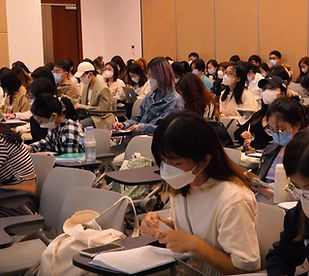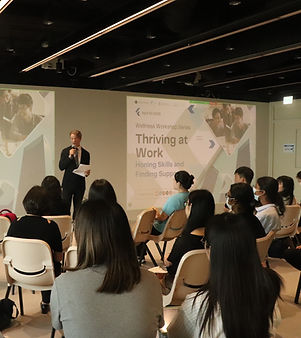
PROJECT OVERVIEW
Our first CRF project (Ref. No. C7086-21G) examined the education, social and health impacts of COVID-19 pandemic on university graduates transitioning to the workforce in Hong Kong. It focuses on four cohorts of graduates: 2020, 2021, 2022 and 2023. University graduates are considered a vulnerable demographic group in the workforce, and the pandemic has worsened this situation as graduates have faced a suppressed job market, layoffs, and having to demonstrate a new ‘skills set’ required by the workplaces (e.g. more advanced digital skills; mental resilience). Graduates’ workplace transitions are an important societal issue as unsuccessful transitions incur huge financial and social costs, including the cost of poor mental health.
Our second CRF project (Ref. No. C7075-23W) builds on the team's first CRF project. This new project extends the previous project to post-COVID workplaces. Graduates are a vulnerable demographic group in the post-pandemic workforce , they are facing worsened mental health, changed workplace practices, and different employment opportunities. The project also examines new career opportunities in the Greater Bay Area (GBA). It will investigate how graduates could be best supported in different career choices across the GBA. This mixed-methods project will draw on interview and survey data from graduates, employers and university staff about the impacts of COVID-19 and its aftermath on graduates' experiences. This data will help us yo develop effective strategies to support graduates’ transitions. The project will combine insights from sociolinguistics, psychology, and other relevant disciplines. The project will also engage participants at every stage of the project, from design to implementation and dissemination.
The projects involve local and global collaborations, with co-principal investigators and collaborators from Hong Kong NGOs and business organizations, as well as researchers from universities in the United Kingdom. The projects utilize a mixed-methods approach to interview and survey students, graduates, employers, and university staff. We are also interested in identifying the skills and competencies that students are expected to have as they transition into the workforce during such a difficult time, and also post-pandemic.
Ultimately, we hope to use the findings from the projects to develop evidence-based support strategies and resources to assist graduates with successful workplace transitions. These resources will support the development of core competencies required in the post-COVID-19 workplaces, including digital, linguistic, interpersonal competencies and mental health resilience.
Our research has been approved by the HKU Human Research Ethics Committee [HKU Ethics ID: EA200104 and EA230432].





